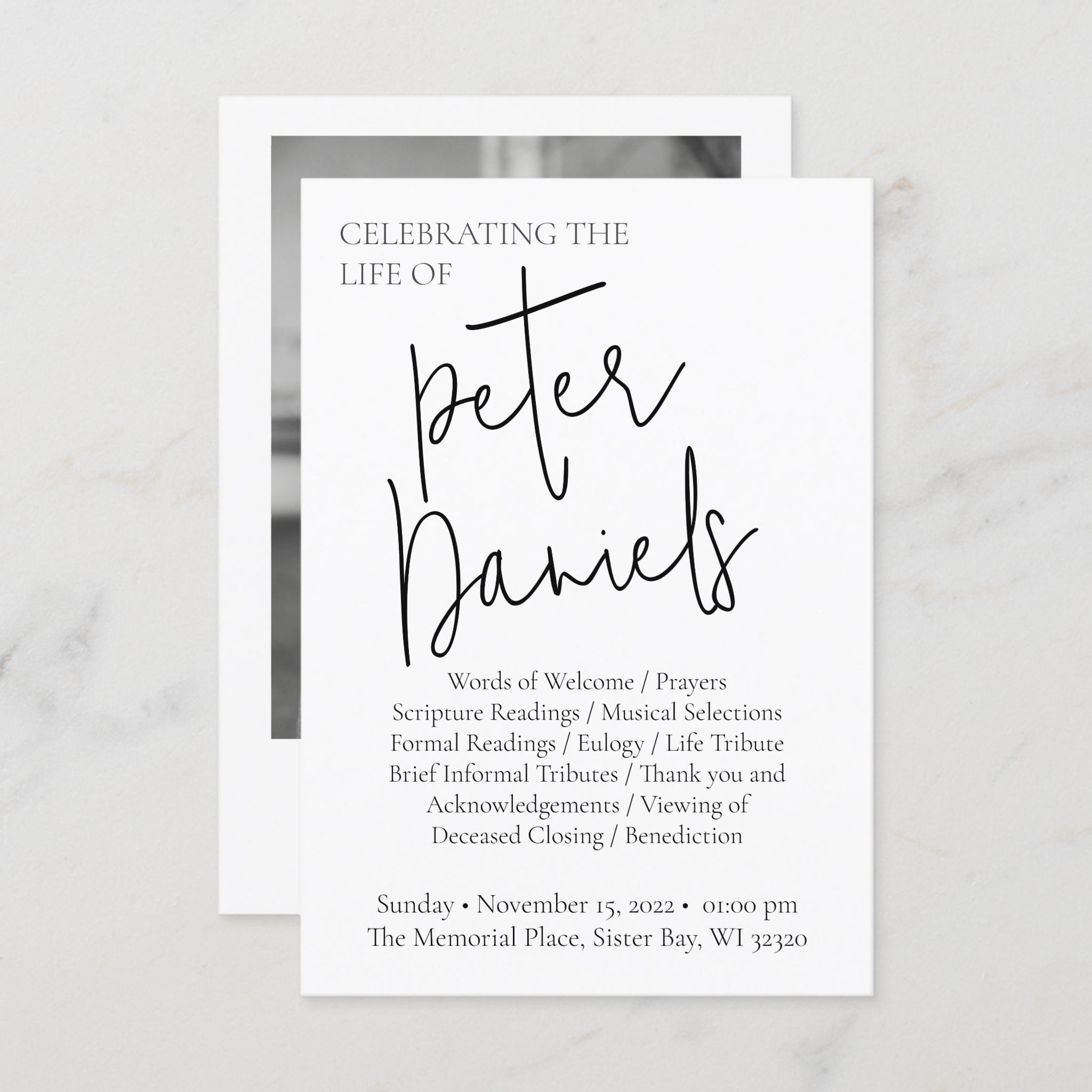We may earn money or products from the companies mentioned in this post. As an Amazon Associate I earn from qualifying purchases. Disclosure of Material Connection: Some of the links in this post may be "affiliate links." This means if you click on the link and purchase an item, I will receive an affiliate commission.
Facing the task of writing a funeral speech and delivering a eulogy is one of the most challenging, yet profoundly meaningful, ways to honor someone you’ve lost. It’s a final gift, a public tribute to a life lived. During a time of grief, finding the right words can feel overwhelming. You’re not alone in feeling this pressure. This guide is here to help. We’ll provide practical steps for writing a memorable funeral speech, offer heartfelt examples for various relationships, and share tips for delivering your tribute with grace and love, even through tears.
Crafting a Heartfelt Eulogy: Meaningful Funeral Speech Examples & A Compassionate Writing Guide
Why Does a Eulogy Matter?
A eulogy (often called a funeral speech) serves several vital purposes:
- Honors the Deceased: It celebrates their life, personality, and achievements.
- Provides Comfort: Sharing positive memories can be healing for both the speaker and the listeners.
- Acknowledges the Loss: It helps formally mark the passing and begin the collective grieving process.
- Paints a Picture: It helps attendees, some of whom may not have known the deceased well, understand who they were.

How to Write a Memorable and Meaningful Eulogy: A Step-by-Step Guide
Don’t aim for perfection; aim for sincerity. Here’s how to approach writing:
-
Step 1: Brainstorm & Gather Memories
- Reflect: Think about your relationship with the person. What defining qualities come to mind? (e.g., kindness, humor, resilience, passion).
- Jot Down Memories: List specific anecdotes, stories, or moments that capture their essence. Funny, touching, everyday moments – they all matter.
- Consider Their Impact: How did they influence your life? How did they impact others?
- Talk to Others: If possible, briefly chat with other family members or friends. They might share stories or perspectives you hadn’t considered.
-
Step 2: Decide on a Theme or Tone
- What central message do you want to convey? (e.g., their unwavering love, their adventurous spirit, their quiet strength).
- Will the tone be primarily reflective, celebratory, perhaps with gentle humor (if appropriate for their personality and the audience), or deeply emotional? A mix is often natural.
-
Step 3: Structure Your Eulogy
A simple structure works best:
- Introduction (Brief):
- Introduce yourself and your relationship to the deceased.
- Briefly express your sadness and the honor/difficulty of speaking.
- State the main theme or purpose (e.g., “I want to share a few memories that capture [Name]’s incredible spirit”).
- Body (The Heart of the Speech):
- Share 2-4 specific stories or anecdotes that illustrate their key qualities or your chosen theme.
- Talk about their passions, hobbies, quirks, and what made them unique.
- Mention their impact on family, friends, or community.
- Focus on positive aspects and cherished memories.
- Conclusion (Brief):
- Reiterate the main theme or their most significant quality.
- Offer a final, heartfelt sentiment (e.g., expressing how much they’ll be missed, a wish for peace, a simple “We loved you”).
- A short quote or line from a poem can work well here if it feels right.
- Introduction (Brief):
-
Step 4: Write a Draft – Keep it Conversational
- Write as if you were talking to a friend. Avoid overly formal or complex language.
- Be concise. Aim for a delivery time of 3-7 minutes. This is typically 500-1000 words when spoken slowly. Time yourself reading it aloud.
- Focus on your genuine feelings and memories. Don’t try to speak for everyone.
-
Step 5: Refine and Practice
- Read Aloud: This helps catch awkward phrasing and check the timing.
- Edit: Cut unnecessary words or stories that don’t strongly support your theme. Ensure a smooth flow.
- Get Feedback (Optional): Ask a trusted friend or family member to listen and offer gentle feedback.
- Practice, Don’t Memorize: Familiarize yourself with the flow, but don’t try to memorize word-for-word. It’s okay to read from notes (use a large font!).
Tips for Delivering the Eulogy
- Bring Tissues: It’s okay (and expected) to get emotional.
- Have Water Nearby: Your mouth may get dry.
- Speak Slowly and Clearly: Pause between thoughts.
- Make Eye Contact: Look up occasionally to connect with the audience.
- Breathe: Take deep breaths if you feel overwhelmed. Pausing is okay.
- Have a Backup: Ask someone beforehand if they can step in or stand nearby for support if you find you cannot continue.
>> grab the free download here <<
Heartfelt Funeral Speech Examples (Templates to Adapt)
Remember to personalize these examples heavily with your own specific memories and details.
1. Eulogy Example for a Father
“Hello, I’m [Your Name], and I’m [Deceased’s Name]’s [son/daughter]. It’s hard to stand here today, but I’m grateful for the chance to talk about my Dad.
Dad was a man of [mention a key quality, e.g., quiet strength, infectious laughter, immense generosity]. I remember [share a specific, positive anecdote, e.g., how he taught you something, a funny family trip, a time he was there for you]. He had this way of [describe a characteristic mannerism or saying].
He loved [mention hobbies/passions, e.g., fishing, his garden, terrible jokes, his grandkids] and shared that love with all of us. More than anything, Dad showed his love through [mention actions, e.g., his hard work, always showing up, his bear hugs]. He taught me the importance of [mention a life lesson].
The house feels quieter now without his [mention something specific, e.g., booming laugh, early morning coffee routine]. We’ll miss him more than words can say. Dad, thank you for everything. We love you, and we’ll carry you in our hearts always.”
2. Eulogy Example for a Mother
“My name is [Your Name], and I’m [Deceased’s Name]’s [daughter/son]. My mom, [Mom’s Name], was the heart of our family. Saying goodbye to her feels impossible.
Mom had the most [mention a key quality, e.g., compassionate heart, resilient spirit, amazing sense of humor]. One memory that truly captures her is [share a specific, warm anecdote, e.g., how she cared for you when sick, a time she made you laugh uncontrollably, her comforting presence]. She always knew how to [mention something she did well, e.g., make anyone feel welcome, find the silver lining, bake the perfect cookies].
She poured her energy into [mention passions/people, e.g., her children, her art, volunteering, her friends]. Her greatest joy was [mention something that made her happy]. She taught me what it means to [mention a key value or lesson].
Life won’t be the same without her [mention something specific, e.g., warm smile, wise advice, endless encouragement]. Mom, your love shaped us, and it will stay with us forever. We miss you terribly. Rest peacefully.”
>> grab the free download here <<
3. Eulogy Example for a Grandparent (Grandmother/Grandfather)
“I’m [Your Name], and [Deceased’s Name] was my beloved [Grandmother/Grandfather]. To me, [Grandma/Grandpa] was always a source of [mention a key quality, e.g., unconditional love, fascinating stories, gentle wisdom].
I have so many fond memories, but one that stands out is [share a specific, cherished memory, e.g., visiting their house, a special tradition, their unique way of showing affection]. They had this incredible knack for [mention a skill or trait, e.g., telling stories of the past, making the best pancakes, listening without judgment].
[He/She] loved [mention hobbies/interests, e.g., reading, gardening, watching sports, their faith] and always encouraged us to [mention something they encouraged]. The lesson I’ll always carry from them is [mention a life lesson].
We were so lucky to have [him/her] in our lives for so long. The world feels a little less bright without [him/her]. [Grandma/Grandpa], thank you for the memories and the love. We will miss you dearly.”
4. Eulogy Example for a Friend
“Hi everyone, I’m [Your Name]. [Deceased’s Name] and I were friends for [Number] years. It’s incredibly difficult to imagine life without [him/her].
[Friend’s Name] was truly one of a kind – [mention key qualities, e.g., loyal, adventurous, hilariously funny, deeply kind]. I’ll never forget the time we [share a specific, representative memory – maybe funny, maybe touching, maybe adventurous]. That was classic [Friend’s Name]!
[He/She] was passionate about [mention interests/causes] and had this amazing ability to [mention a positive impact, e.g., make anyone laugh, bring people together, offer insightful advice]. Friendship with [him/her] meant [describe the essence of the friendship, e.g., constant support, shared adventures, knowing you always had someone in your corner].
Losing [Friend’s Name] leaves a huge hole in our lives. [He/She] brought so much joy and light. My dear friend, thank you for the laughter, the support, and the unforgettable memories. You’ll be deeply missed.”
>> grab the free download here <<
5. Eulogy Example for a Sibling (Brother/Sister)
“I’m [Your Name], and I’m [Deceased’s Name]’s [brother/sister]. Growing up with [Sibling’s Name] meant [describe the dynamic, e.g., never a dull moment, always having a partner-in-crime, learning to share… eventually!]. Losing [him/her] feels like losing a part of myself.
[Sibling’s Name] was [mention key qualities, e.g., fiercely protective, incredibly creative, the life of the party, quietly determined]. I’ll always cherish the memory of [share a specific childhood or adult memory that highlights their personality or your bond]. [He/She] had a unique way of [mention a trait, e.g., seeing the good in people, tackling challenges head-on, making holidays special].
We shared [mention shared experiences, e.g., family jokes, secrets, navigating life’s ups and downs] together. [He/She] taught me [mention something learned from them].
It’s hard to accept that there won’t be any more [mention something you’ll miss doing together]. [Brother/Sister], thank you for being you. The memories we made will live on. I love you and miss you terribly.”
6. Eulogy Example for a Spouse or Partner
“My name is [Your Name], and I was blessed to share my life with [Deceased’s Name] for [Number] years. [He/She] was my partner, my best friend, my everything. Standing here today is the hardest thing I’ve ever had to do.
[Spouse’s Name] was the most [mention core qualities, e.g., loving, patient, vibrant, intelligent] person I’ve ever known. Our life together was filled with [mention shared joys, e.g., laughter, adventure, quiet moments, building a family]. One of my most treasured memories is [share a specific, deeply personal and loving memory].
[He/She] loved [mention passions] and approached life with [describe their attitude]. What I admired most was [mention a specific admirable trait]. [He/She] made me a better person by [explain their positive influence].
The thought of facing the future without [him/her] is daunting. [He/She] was my rock, my confidant, my home. My dearest [Spouse’s Name], thank you for the incredible journey. Your love will light my way always. I will love you and miss you forever.”
>> grab the free download here <<
Incorporating Poems or Quotes
A short, relevant poem or quote can add depth, but use it sparingly and ensure it fits the person and the tone. Introduce it simply, e.g., “There’s a short poem that reminds me of [Name]…” or “[Name] always loved this quote…”
What to Avoid in a Eulogy
- Negativity or Resentment: This is not the time to air grievances.
- Inside Jokes: Unless the majority of the audience will understand.
- Excessive Length: Be respectful of time and other speakers.
- Focusing Only on Yourself: Keep the focus firmly on the deceased.
- Controversial Topics: Unless directly relevant and handled sensitively.
- Trying Too Hard to Be Funny: Gentle, appropriate humor reflecting their personality is okay; forced jokes are not.
Frequently Asked Questions (FAQ)
How long should a eulogy be?
Aim for 3-7 minutes. This allows time for meaningful reflection without being too long.
Is it okay to use humor in a eulogy?
Yes, if it reflects the deceased’s personality and the overall tone is respectful. Gentle, loving humor can be a wonderful tribute. Know your audience.
What if I get too emotional to speak?
It’s perfectly okay. Pause, take a breath, sip some water. If you can’t continue, it’s acceptable to have your backup person take over or simply end with a heartfelt “Thank you” or “I miss him/her.” People understand.
Can someone else read the eulogy I wrote?
Yes. If delivering it feels too overwhelming, ask a close friend, family member, or the officiant to read it on your behalf.
What’s the difference between a eulogy and an obituary?
An obituary is a written notice of death, often published online or in newspapers, usually including biographical details and funeral information. A eulogy is a speech given at the funeral or memorial service to honor the deceased.
A Final Word of Comfort
Writing and delivering a eulogy is an act of love performed during a time of immense sadness. Be kind to yourself during this process. Your heartfelt words, delivered with sincerity, will be a meaningful tribute and a source of comfort to others. Sharing your memories helps keep their spirit alive in the hearts of all who knew and loved them.



